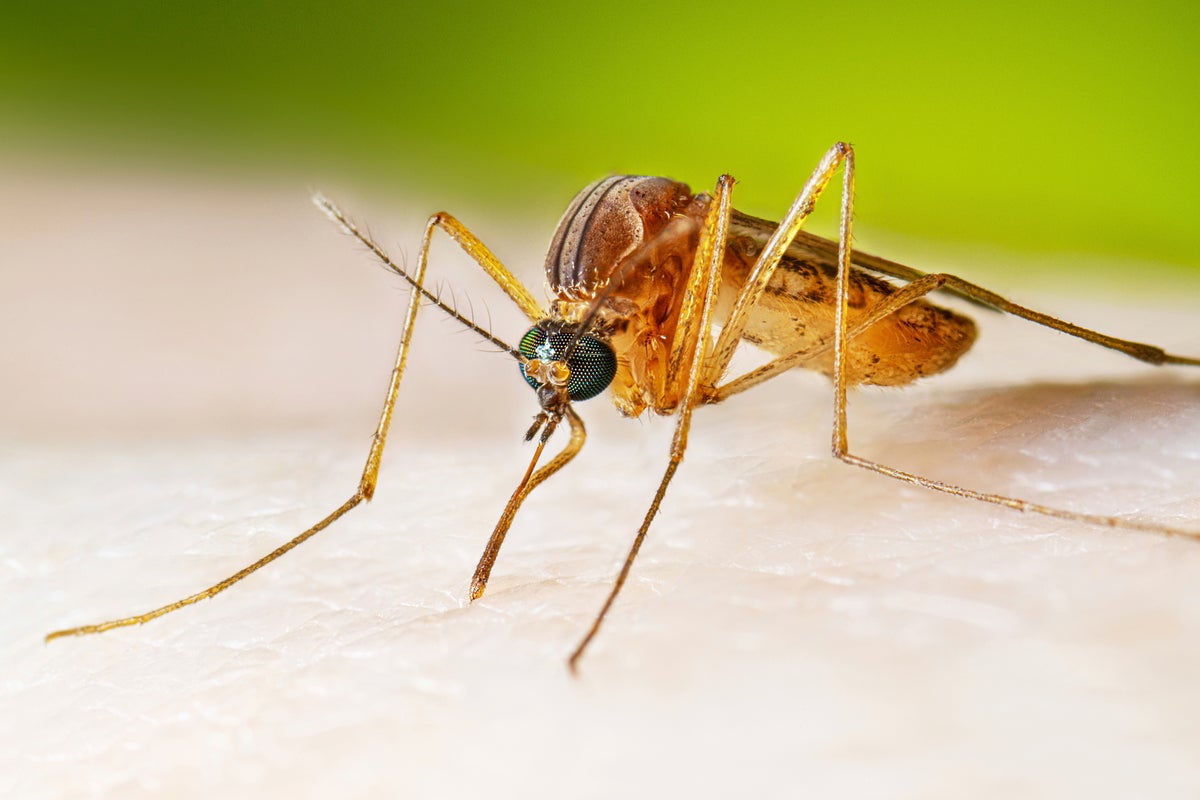Science
British Scientists Discover Genetic Clues to Combat Malaria

A significant breakthrough in the fight against malaria has emerged from a study conducted by scientists at the Wellcome Sanger Institute in the United Kingdom. The research focuses on the Anopheles funestus mosquito, a prolific carrier of malaria in Africa, and reveals how this species has adapted to evade control measures. By examining genetic variations, the study aims to pave the way for new strategies to eliminate malaria effectively.
The team analyzed the genomes of 656 modern An. funestus specimens collected across Africa, alongside 45 historic specimens from the Natural History Museum in London and the French National Research Institute for Sustainable Development, which were gathered between 1927 and 1967. Their findings, published in the journal Science, indicate that genetic diversity in the mosquito species is extensive, with populations in equatorial regions sharing similarities despite spanning a range of 4,000 kilometers. Notably, certain populations from northern Ghana and southern Benin displayed distinct genetic profiles, highlighting the complexities in controlling these mosquitoes regionally.
Researchers noted that An. funestus mosquitoes are particularly adept at adapting their behaviors to survive. For instance, they have shifted their biting patterns from indoors in the evening to outdoors during the day, likely as a response to the increased use of mosquito nets. This evolutionary adaptability poses challenges for malaria control efforts, which rely on understanding mosquito behavior and genetics.
A key aspect of the study involved examining historical genetic data, which revealed that certain mutations associated with insecticide resistance were already present in samples from the 1960s. However, other beneficial mutations linked to resistance emerged later, corresponding with the introduction of various insecticides over the decades. This insight underscores the dynamic nature of mosquito evolution and the need for adaptive control strategies.
The implications of this research extend towards innovative approaches to combat malaria. The Sanger team has identified a potential target for gene drive technology, which could genetically modify An. funestus to reduce the population of female mosquitoes, the primary transmitters of malaria. Encouragingly, the key genetic target identified in another malaria vector, An. gambiae, shows a high degree of similarity in An. funestus, suggesting that existing gene drive systems may be adaptable for both species.
Professor Charles Wondji from the Liverpool School of Tropical Medicine and an author of the study, emphasized the importance of An. funestus in malaria transmission, stating, “For too long An. funestus has been neglected despite its key role in malaria transmission across Africa.” He added that the research is a major milestone that could facilitate future interventions against this critical vector.
Dr. Mara Lawniczak, senior author and leader at the Wellcome Sanger Institute, noted the complexity of mosquito populations, explaining, “We find some mosquito populations readily sharing variation across the African continent, while others are close neighbours but genetically distinct. This is a challenge for vector control.”
The findings from this research provide vital insights into the genetic makeup and behavior of An. funestus, offering a foundation for more effective surveillance and targeted control measures against malaria. As scientists continue to unravel the genetic intricacies of this mosquito species, the hope remains that innovative strategies will emerge to reduce malaria transmission and ultimately eradicate the disease.
-

 Entertainment3 weeks ago
Entertainment3 weeks agoAnn Ming Reflects on ITV’s ‘I Fought the Law’ Drama
-

 Entertainment2 months ago
Entertainment2 months agoKate Garraway Sells £2 Million Home Amid Financial Struggles
-

 Entertainment2 months ago
Entertainment2 months agoKim Cattrall Posts Cryptic Message After HBO’s Sequel Cancellation
-

 Entertainment2 weeks ago
Entertainment2 weeks agoWhere is Tinder Swindler Simon Leviev? Latest Updates Revealed
-

 Entertainment4 weeks ago
Entertainment4 weeks agoMasterChef Faces Turmoil as Tom Kerridge Withdraws from Hosting Role
-

 Entertainment2 weeks ago
Entertainment2 weeks agoITV’s I Fought the Law: Unraveling the True Story Behind the Drama
-

 Entertainment1 month ago
Entertainment1 month agoAldi Launches Cozy Autumn Fragrance Range Ahead of Halloween
-

 Entertainment2 months ago
Entertainment2 months agoSpeculation Surrounds Home and Away as Cast Departures Mount
-

 Entertainment2 months ago
Entertainment2 months agoMarkiplier Addresses AI Controversy During Livestream Response
-

 Science2 months ago
Science2 months agoAstronomers Unveil New Long-Period Radio Transient ASKAP J1448−6856
-

 Lifestyle1 month ago
Lifestyle1 month agoSummer Flags Spark Controversy Across England as Patriotism Divides
-

 Health2 months ago
Health2 months agoWigan and Leigh Hospice Launches Major Charity Superstore





















